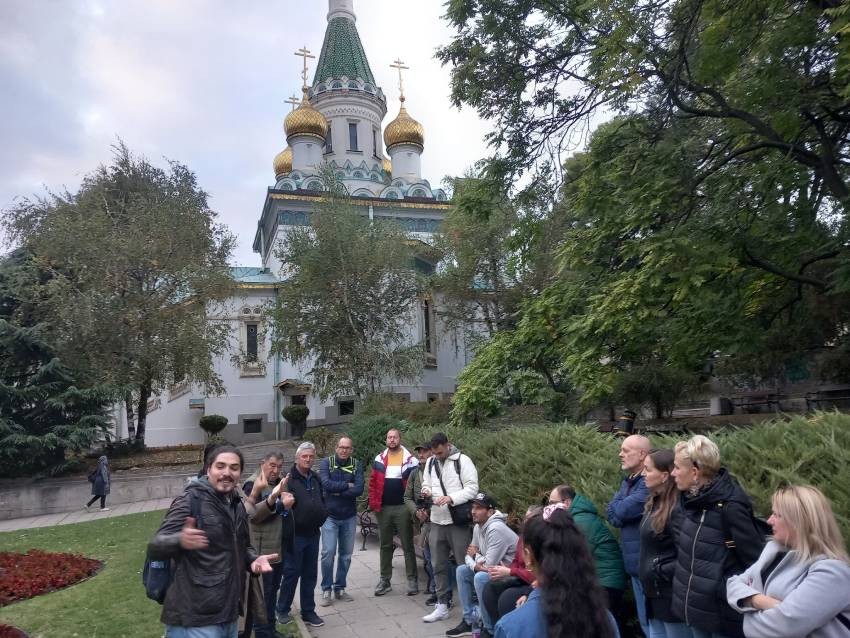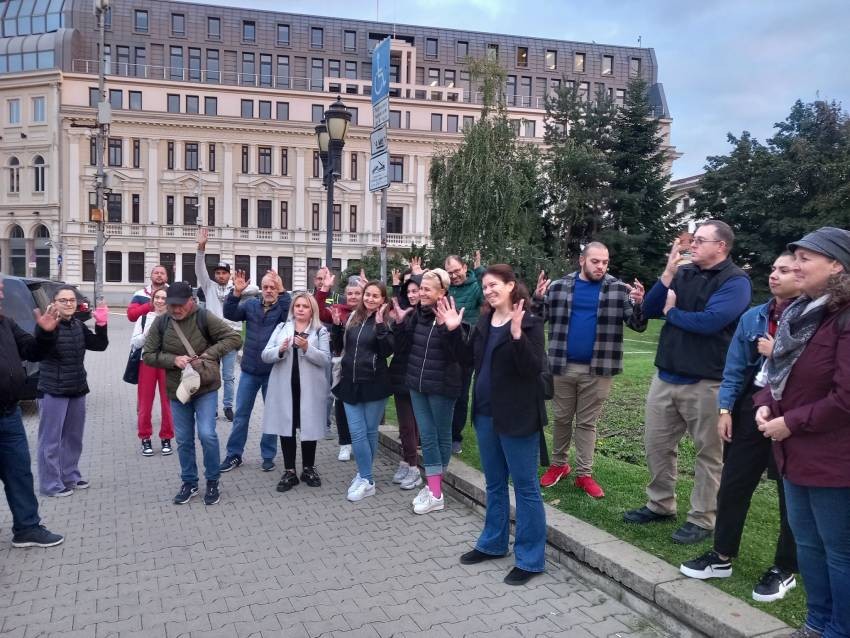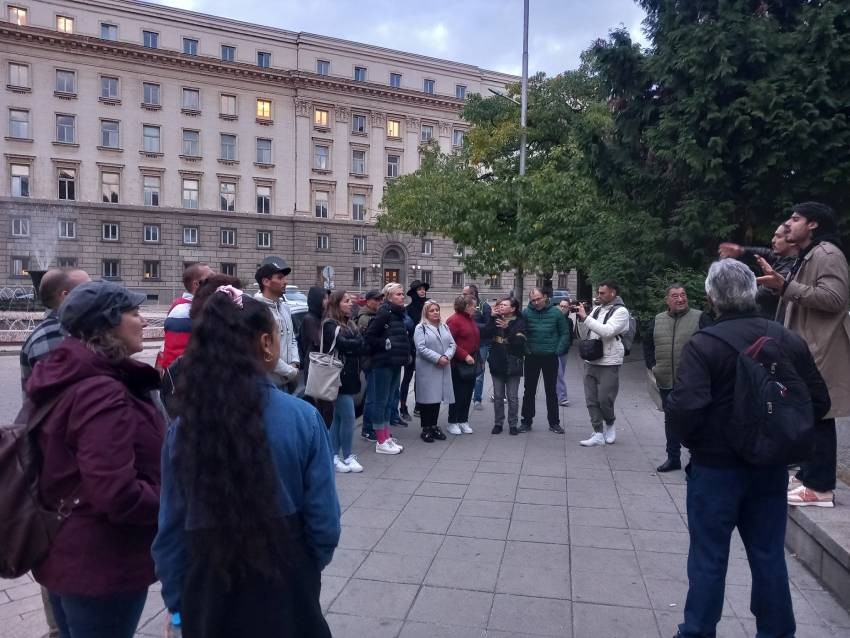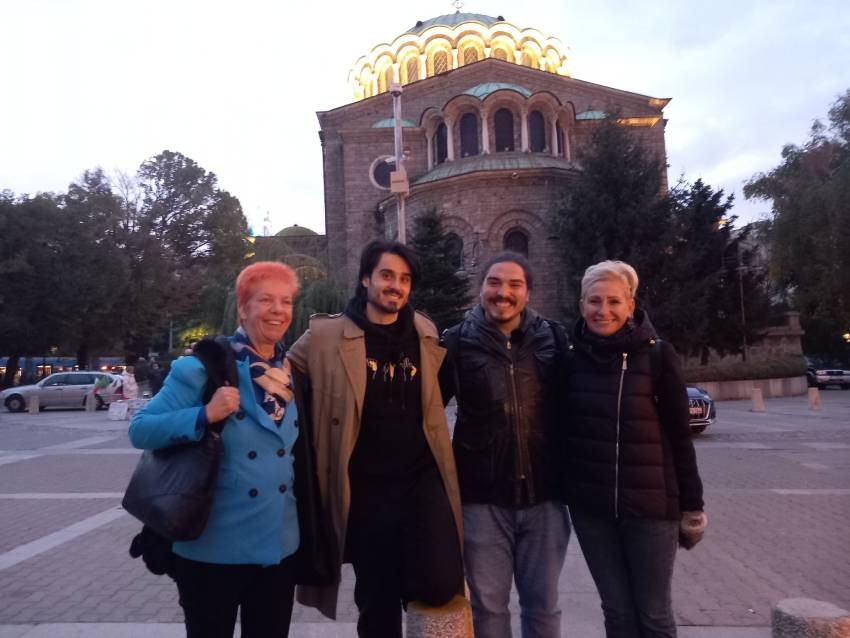The idea of young historian Viktor Topalov for city tours of Sofia attracted sociologist Vyara Gancheva from the Bulgarian Academy of Sciences and sign language interpreter Boris Bandev. During the tours they present historical facts, urban legends, funny stories that immerse the guests into the atmosphere of the past. The difference this time is that the story is translated into sign language and in this way it becomes accessible to people with hearing impairment.

According to unofficial data, about 15,000 people with hearing impairment live in Sofia (in the country their number reaches 120,000). For many of them, access to educational and cultural events is limited due to the lack of information adapted for them, the organizers of the walking tours united in the "Silent City" project, say. The project includes three walking tours with sign language interpretation, a video training, as well as PR and advertising activities.
The first tour was held among great interest on October 18 this year, the second is on October 25, and the last one will take place on November 1 and will be dedicated to the students of the Andy and Aya Academy for Children from the Deaf Community in Bulgaria.

An interesting fact is that the city tours are always attended by future interpreters who are currently learning sign language and need practice.
"People with disabilities are quite isolated because there is stigma and discrimination against them," Vyara Gancheva says. According to the sociologist, each of them has talents and strengths that need to be brought out and this can only happen when they are given a helping hand and socialized through various activities.

"The project is supported by the Social Innovation Program of Sofia as it puts the city on the European map of capitals with walking tours with sign language interpretation,” Vyara Gancheva adds. “So far, this country has not been part of the list of European capital cities with similar initiatives. I am very glad that with this modest project we can do something to make hearing impaired people feel important, as there are not enough inclusive measures for them. They need social contacts, communication, respect. Our tours are inclusive as they bring together sign language interpreters, sign language learners and hearing impaired people. Through our competence, we strive to help hearing impaired people feel like all of us, with the help of Sofia's cultural and historical wealth. These people have difficulties and need a sign language interpreter when they go to the doctor or to an administrative office, when they want to call an ambulance, or seek a solution to a problem. Through the participation in Silent City we want to highlight these problems as well."
In Bulgaria, the population is aging and as people get older, their hearing becomes weaker. "These people are among us and they need our help to feel socially included and to participate in cultural life," Vyara Gancheva says.

"Even access to some state institutions is impossible for them,” she adds. “There is still a lot to be done, but the most important thing is to approach with understanding and specifically study the needs of these people, so as not to make mistakes. Without their participation, nothing useful can be done, while the benefit is not only for them but for everyone in this society. In 2021 the Sign Language Interpretation Act was adopted. We need sign language interpreters in more places, for example in the field of telemedicine. We would all be happier if there was equality between different groups in society, but this requires targeted measures and efforts."
English: Alexander Markov
Photos: personal archive of Assistant Professor Vyara Gancheva
The Bulgarian minority in Romania marked a significant event with the official opening of the Bulgarian Inn in the village of Izvoarele (Hanul Bilgarilor), Teleorman County (Southern Romania)- a locality with Bulgarian roots dating back over 200 years...
The 14th edition of DiVino.Taste, Bulgaria’s leading forum for wines and winemakers, will take place from 28 to 30 November at the Inter Expo Centre in Sofia. Over 80 producers from all wine regions will participate, offering tastings of around 600 of the..
Minutes before the second and final reading, at the parliamentary budget and finance committee, of the state budget for 2026, the leader of the biggest party represented in parliament GERB Boyko Borissov halted the procedure and sent the draft bill..

+359 2 9336 661
